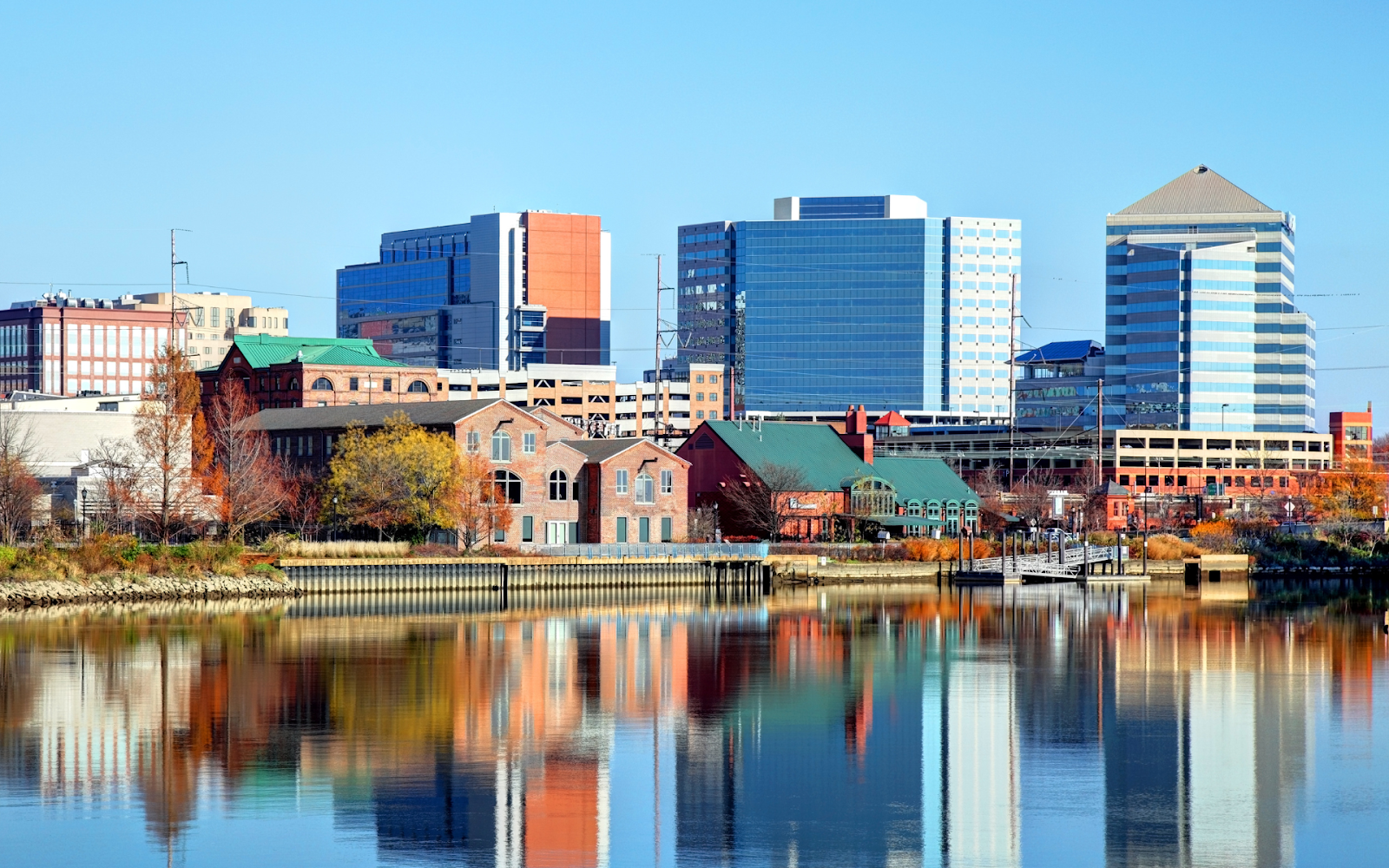
Key Takeaways:
- Legal Distinction is Crucial: Delaware's THC regulations clearly differentiate between medical use, which is permitted, and recreational use, which remains illegal.
- Penalties Remain for Non-Compliance: Possession of THC over the allowed limit, as well as its sale and cultivation, can lead to severe legal penalties in Delaware.
- Changes on the Horizon: There is potential for significant changes in THC legislation in Delaware, particularly regarding the legalization of recreational use and expansion of medical hemp accessibility.
At Soul, we take pride in our unwavering commitment to comply with Delaware's THC regulations. With our strict adherence to the requirement that all our CBD products contain less than 0.3% THC, we are able to operate legally in the state and offer our customers safe and high-quality wellness options. Our dedication to upholding these laws not only showcases our leadership in the hemp industry, but also reflects our genuine concern for consumer safety and satisfaction.
In this article, we will provide clarity on the complex laws surrounding the use of THC, the psychoactive compound found in cannabis. We'll explore various aspects of THC regulation, including the distinction between medical and recreational use, the current legal framework, penalties for possession, the impact of federal laws, legal alternatives, and what the future might hold for THC legislation in Delaware. Whether you're a resident, considering visiting, or just curious about the laws in this state, this guide will equip you with the essential information you need to understand THC's legal landscape in Delaware.
Understanding The Difference Between Medical And Recreational Use
In Delaware, the distinction between medical and recreational use of THC is critical to understanding the laws behind it. Medical use of THC has been legalized through the state's medical hemp program, which allows patients with qualifying conditions to obtain and use hemp for therapeutic purposes. This program is tightly regulated, requiring patients and caregivers to be registered with the state and to obtain hemp from licensed dispensaries.
On the other hand, recreational use of THC remains illegal in Delaware. Despite several legislative efforts to legalize recreational hemp, it has not yet been approved, and the possession, sale, or use of hemp for non-medical purposes can lead to legal consequences.
Current Laws Governing THC In Delaware
Medical Cannabis Program
Delaware established its medical cannabis program to allow patients with specific qualifying conditions to use hemp for therapeutic purposes. To participate, patients must receive certification from a licensed physician and register with the Delaware Department of Health and Social Services. The program strictly regulates how hemp is dispensed, with patients able to obtain their medication only from state-licensed dispensaries.
Decriminalization Of Small Amounts
In an effort to reduce the penalties associated with minor drug offenses, Delaware has decriminalized the possession of small amounts of hemp. Individuals caught with up to one ounce of hemp are subject to a civil penalty, which incurs a fine similar to a traffic ticket, rather than facing criminal charges.
No Recreational Sales
Despite the decriminalization of small amounts, the sale, distribution, and cultivation of hemp for recreational purposes remain illegal in Delaware. There are no provisions in state law that allow for recreational dispensaries, and individuals cannot legally grow hemp for personal use.
CBD Products
Following federal guidelines, Delaware allows the sale and use of CBD products derived from hemp, provided they contain less than 0.3% THC. These products do not require a prescription and are available over the counter.
Penalties For THC Possession in Delaware
Possession Of Over One Ounce
In Delaware, individuals caught with more than one ounce of hemp but less than 175 grams face misdemeanor charges. This can result in penalties, including fines of up to $575 and imprisonment for up to three months.
Distribution And Sale
The distribution or sale of hemp outside of regulated medical channels is strictly prohibited and classified as a felony. Consequences for these offenses can vary significantly based on the amount of hemp involved and whether the individual has prior convictions. Penalties can range from three years to life in prison, especially if large quantities are involved or if sales are targeted toward minors.
Cultivation
It is important to note that growing hemp in Delaware is considered illegal, regardless of the quantity. If found cultivating hemp, individuals can be charged with a felony and may have to face significant fines and imprisonment.
Other Aggravating Factors
Enhanced penalties apply if THC-related offenses occur in certain circumstances. For instance, offenses committed within a school zone or involving minors can double the standard penalties. Additionally, repeat offenders or those with prior drug convictions may face mandatory minimum sentences, reflecting Delaware's aggressive policy on repeat violations and its focus on protecting the community.
Impact Of Federal Laws On Delaware's THC Regulations
Federal Illegality Of Cannabis
Cannabis's classification as a Schedule I drug under the federal Controlled Substances Act underscores its purported high potential for abuse and lack of accepted medical use, creating a fundamental legal conflict with states like Delaware that have legalized its medical use. This federal classification restricts scientific research and banking for cannabis businesses, complicates legal issues, and keeps the threat of federal enforcement alive, potentially impacting individuals and businesses even in states with more progressive cannabis policies.
Impact On Medical Hemp
The federal prohibition of hemp has created a complex environment for Delaware's medical hemp program, where patients and providers are protected under state law but face legal risks under federal law. For instance, federally insured banks often refuse to service state-legal hemp businesses, which leads to operational challenges like handling large amounts of cash, increasing security risks, and complicating day-to-day financial management.
Legal Uncertainty For Businesses And Consumers
The conflict between state and federal laws regarding hemp in Delaware is causing legal uncertainty for everyone involved in the industry. Businesses are struggling to access financial services such as loans and credit, and they are not eligible for federal bankruptcy protection in case of financial difficulties. Consumers are also facing challenges as their legally purchased products are still considered illegal by the federal government, potentially putting their employment at risk if they are subjected to federal drug testing.
Legal Alternatives To THC In Delaware
There are a few legal alternatives for those seeking the benefits of cannabis in Delaware without the legal risks associated with THC:
- CBD Products: The use of CBD (cannabidiol) products, derived from hemp and containing less than 0.3% THC, is the most popular legal alternative to THC in Delaware. These products are widely available in various forms such as oils, creams, and edibles. CBD is reputed for its potential health benefits, including reducing anxiety, relieving pain, and improving sleep, without the psychoactive effects associated with THC.
- Delta-8 THC: Another emerging alternative is Delta-8 THC, a cannabinoid similar to THC but with less potency and slightly different effects. While it is psychoactive, it is typically less intense and has fewer side effects. However, consumers should be aware of the legal gray areas surrounding Delta-8 products, as regulations can vary and are subject to change.
- Kratom: Kratom is a natural substance derived from the leaves of the Mitragyna speciosa tree, native to Southeast Asia. It is legal in Delaware and is used by some as an alternative for pain management and opioid withdrawal. However, Kratom is not without its controversies, as it faces scrutiny from health officials over safety and potential health risks.
- Over-the-counter (OTC) Alternatives: Various over-the-counter products offer pain relief and mood stabilization, which can be alternatives to THC for some users. Supplements such as St. John’s Wort can be taken for depression and anxiety, while acetaminophen or ibuprofen can help with pain relief.
Future Outlook On THC Legislation In Delaware
Potential For Recreational Legalization
Momentum is building among Delaware lawmakers and citizens for the legalization of recreational hemp. Legislative proposals aimed at legalizing recreational use have been discussed, and future sessions may finally see successful passage. Legalizing recreational hemp could increase state revenue through taxation, decrease law enforcement costs, and weaken the illicit market. This aligns Delaware with the growing number of states that have embraced legalization.
Expanding Medical Hemp Program
The state may consider broadening the existing medical hemp program to serve patients better. This could include adding new qualifying medical conditions to the list of those eligible for treatment with cannabis, increasing the number of licensed dispensaries to improve accessibility, and potentially permitting home cultivation for personal medical use. These expansions would help to meet the growing demand and make therapeutic cannabis more accessible to a wider array of patients across the state.
Impact Of Federal Decriminalization Or Legalization
Any movement towards decriminalization or legalization of hemp at the federal level would dramatically alter the cannabis regulation in Delaware. Federal legalization would resolve many of the current conflicts between state and federal laws, easing restrictions on banking, reducing legal risks for businesses and consumers, and potentially opening up new markets and opportunities within the state.
Local Ordinances And Regulations
As the state continues to adjust its stance on hemp, individual municipalities might develop their own specific regulations concerning its cultivation, sale, and use. This could result in a patchwork of local laws that reflect the unique priorities and concerns of different communities within Delaware. Such local involvement would allow for more nuanced and community-specific approaches to hemp regulation, potentially addressing local issues more effectively than statewide policies alone.
Final Thoughts
The distinction between medical and recreational use remains a critical aspect of Delaware's THC regulations. While medical cannabis is accessible under specific conditions, recreational use continues to face legal barriers, though this may change with future legislative efforts.
Understanding the legal ramifications, including the penalties for possession beyond allowed limits and the illegality of recreational sale and cultivation, is crucial. Additionally, the impact of federal laws continues to play a significant role in shaping state policies and practices. Residents should also be aware of legal alternatives to THC that are available within the state, providing options for those seeking relief without engaging in illegal activities.
Looking forward, Delawareans might anticipate changes that could further ease restrictions on cannabis, influenced by shifts in public opinion and legislative developments both within the state and at the federal level. Such changes could lead to a more inclusive and comprehensive approach to cannabis, potentially improving access and reducing legal uncertainties.
For now, staying informed and compliant with the current laws is the best course of action for anyone dealing with THC in Delaware. As the dialogue continues and the legal framework develops, there are hopeful signs that more progressive and practical policies could emerge.
Read also:
Frequently Asked Questions About THC Legality In Delaware
When did medical hemp become legal in Delaware?
Medical hemp was legalized in Delaware in 2011.
Can you get a DUI for driving under the influence of hemp in Delaware?
Yes, driving under the influence of hemp is illegal in Delaware and can result in a DUI charge.
Are there any restrictions on where you can consume medical hemp in Delaware?
Yes, consumption of medical hemp is restricted to private places as public consumption is illegal.
Can non-residents purchase medical hemp in Delaware?
No, non-residents cannot legally purchase medical hemp in Delaware; the program is only for residents with a valid medical hemp card.
What conditions qualify for medical hemp in Delaware?
Qualifying conditions include cancer, Alzheimer's disease, PTSD, chronic pain, and other serious ailments as specified by state regulations.
Does Delaware have a hemp tax? What are the tax rates?
Medical hemp in Delaware is subject to standard state sales tax, which is currently 0%.
Can employers drug test for hemp in Delaware?
Yes, employers in Delaware can drug test for hemp and maintain drug-free workplace policies.
Sources:
- Hansen, C., Alas, H., & Davis Jr., E. (2021, June 30). Where Is Marijuana Legal? A Guide to Hemp Legalization. US News & World Report. https://www.usnews.com/news/best-states/articles/where-is-Marijuana-legal-a-guide-to-Hemp-legalization
- Dorbian, I. (n.d.). Despite Some Stumbles, Total Sales In U.S. Cannabis Market Could Soar To $50.7 Billion By 2028, Says Top Researcher. Forbes. Retrieved October 18, 2023, from https://www.forbes.com/sites/irisdorbian/2023/02/15/despite-some-stumbles-total-sales-in-us-cannabis-market-could-soar-to-507-billion-by-2028-says-top-researcher/?sh=1f90e293164d
- Inc, G. (2021, November 4). Support for Legal Marijuana Holds at Record High of 68%. Gallup.com. https://news.gallup.com/poll/356939/support-legal-Marijuana-holds-record-high.aspx
- Washington DC Hemp Laws | WashingtonDCCannabis.org. (n.d.). Washington D.C. Cannabis Information Portal. https://washingtondccannabis.org/laws






